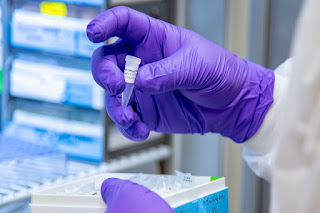PHARMACOVIGILANCE TRAINING-should I outsource and to whom? Why do we need CPC TRAINING?
 |
| pharmacovigilance training courses |
Pharmacovigilance training makes the candidate monitor and analyzes the drugs whether it is licensed for
commercial use in the industries. This is monitored whether the drug is
correctly supplied. This helps to minimize the effect on the patients if the drug has any high risks. It is called DRUG SAFETY. Monitoring the risk and rectifying
or minimizing the effect. There are trainers who train the candidate about how
to analyze, how to monitor and how to
prevent if any issue is identified. If it is not prevented then it may be very
harmful to the public whereas if they
consume it then they may face the consequences so, in order to check this, training is given so that the risk may be monitored and could be
rectified. Mostly risk factor is identified in the pharmaceutical products.
ISOP supports and the main intention is
all about to promote pharmacovigilance both economically and scientifically.
Identification and evaluation are the two important sources for pharmacovigilance.
Pharmacovigilance training courses enhance
the candidate for learning on the patient’s safety and how to prevent when the
patient is affected. The officers test and develop new medications and also
check the effects and safety. Mostly this pharmacovigilance training course
involves identifying the products and if there is any harm it must be prevented
and also ensure about the patient’s care and safety. In
order regarding adverse effects will be received from Patients, Pharmacist and
Healthcare providers via Pharmacovigilance agreements. In simple,
Pharmacovigilance is to recognize the harmful effects linked with
pharmaceutical products and minimizing the risk of any harm that may come to
patients.
 |
| pharmacovigilance training |
The growth is rapid which eventually leads to representative and director roles with good pay packages. Pharmacovigilance training is the most effective field that monitors the adverse reactions and effects of drugs after getting a license to use. Pharmacovigilance services help in minimizing the risks that may happen to the public. They often monitor the drugs to check whether it is valid to use when it is licensed for use.
CPC TRAINING:
CPC training is completely based on AAPC examination. The candidate who
successfully completed medical coding training can prefer CPC training and
further certifications. Highly experienced medical coders are paid high when
compared with other jobs. Subjects like anatomy; physiology is handled by well
wised and experienced staffs. It trains the candidate to be skilled in
assigning accurate medical codes for procedures performed by physicians. They
provide knowledge on anesthesia, surgery, radiology and other such fields. AAPC
provides complete training and preparing the candidate for the CPC exam. CPC exam consists of 150 multiple
choice questions based on various subjects. The entire process of the CPC exam is to test a coders understanding and
knowledge of the coding process. The
candidate with 70% can pass the examination. To certify officially, then the
candidate should be a member of AAPC. It
is limited to the coders with two years of professional medical coding
experience.
 |
| CPC training |
AAPC has a number of
preparations for the CPC exams. RESOLVE MEDICODE trains the candidate with
effective staffs and the coaching available in both online and classroom
courses. CPC certified coders can earn 30% more than other noncertified counterparts. The training gives a
wide knowledge in reviewing and assigning the correct procedure codes for
professional services. CPC
training educates the candidates in order to make them fit for various jobs
by giving them ideas along with authorized and valid certificates. Medical
coding is the more commercial and beneficial field to work. Trained candidates
can be placed in the leading US based MNC companies. There are three common medical codes,
·
ICD-10
– International Classification of Diseases that refers to the diagnosis codes.
·
CPT –
Current Procedural Terminology and this refers to the procedures and services
performed on the patients.
·
HCPCS –
Health Care Common Procedure Coding System which makes reference to the
medicines supplied to the patients.



Comments
Post a Comment